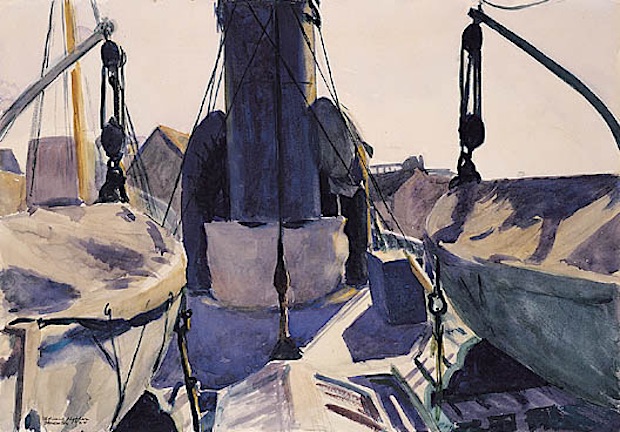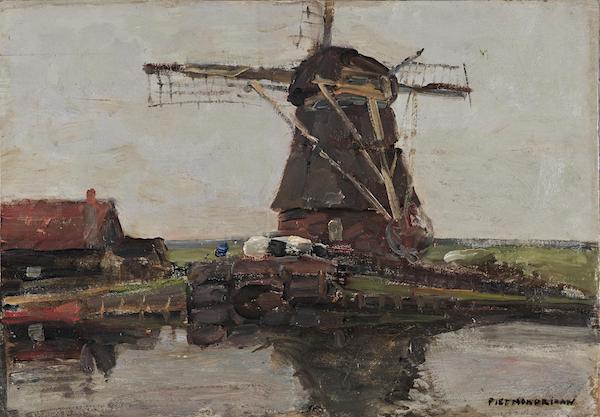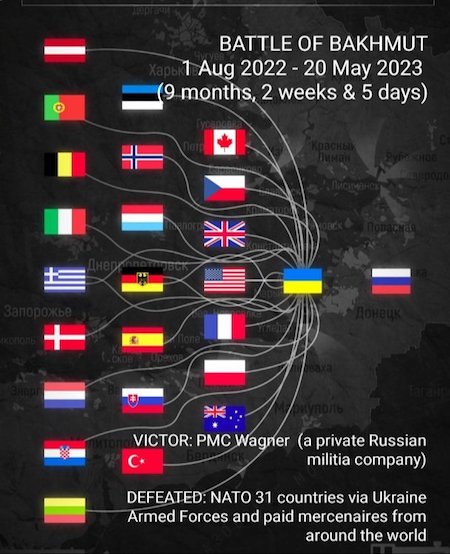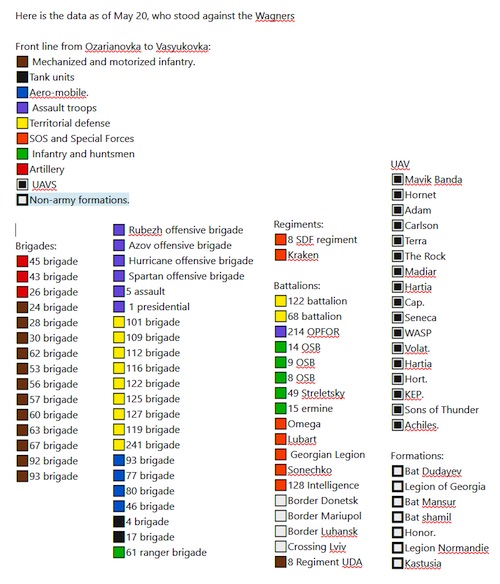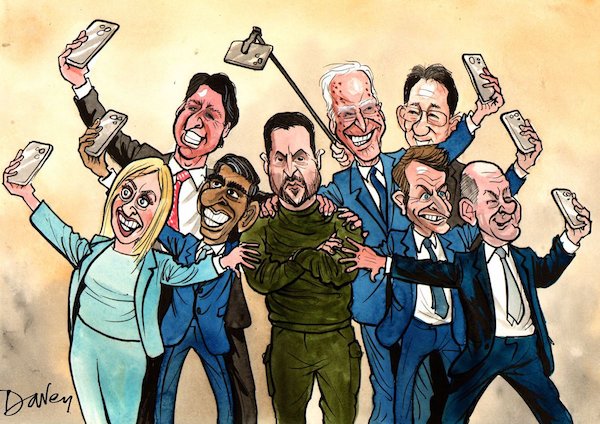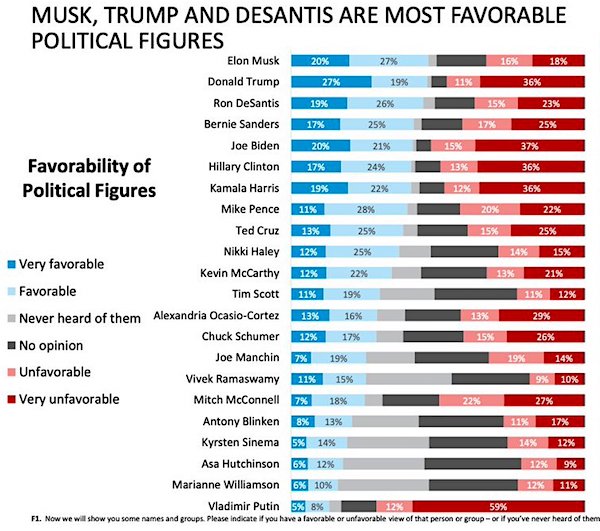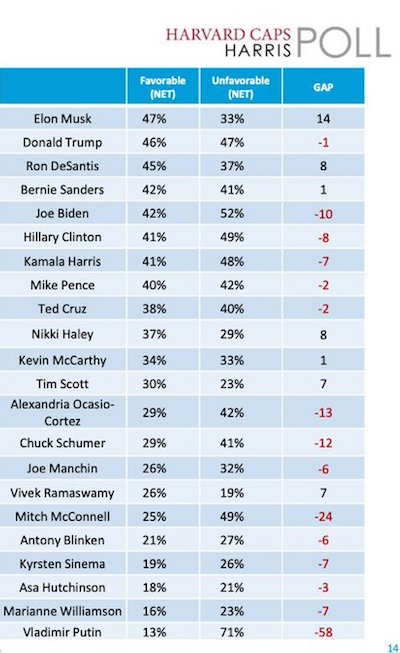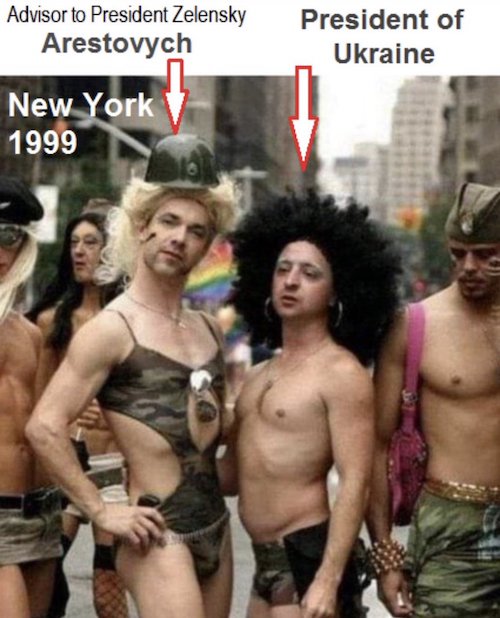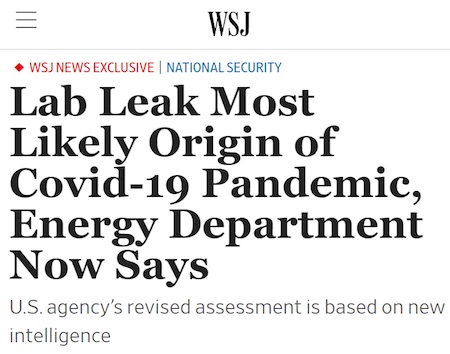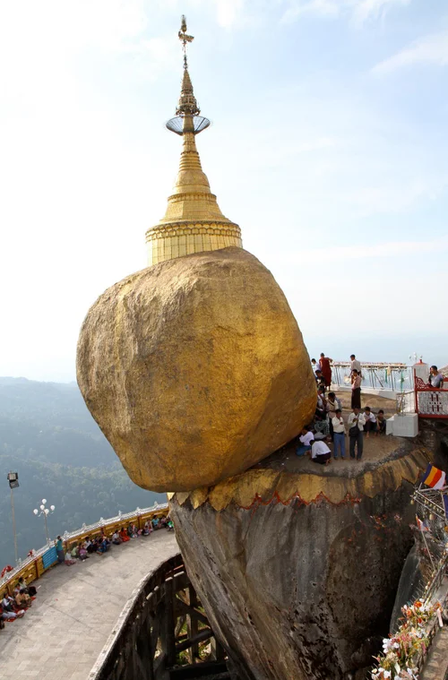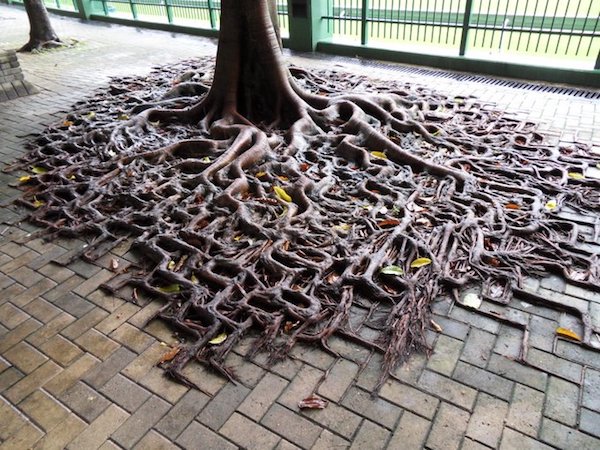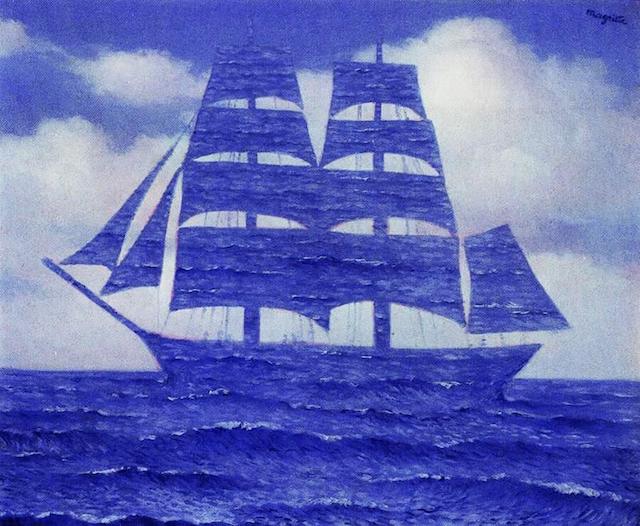
René Magritte The seducer 1953

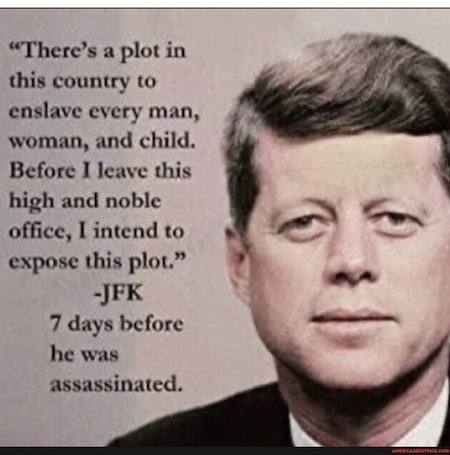

Putin 23 years
https://twitter.com/i/status/1639900503592120320



Putin Mariupol

Mayor

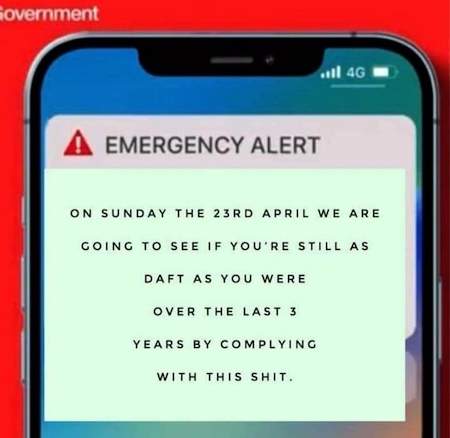

Tucker Thorp



Macgregor

Yellen
https://twitter.com/i/status/1639895094471057408


“We would use the dollar, but they do not let us..”
• Us ‘Shoots Itself In Foot’ By Limiting Use Of Dollar – Putin (TASS)
The United States does damage to itself by limiting the use of the dollar for situational reasons, Russian President Vladimir Putin said on the Rossiya-24 news channel on Saturday. “They saw off the branch they’re sitting on – I’ve been reiterating that – by limiting the use of the dollar based on momentary, situational considerations of political nature. They are harming themselves, and we might even add, they shoot themselves in the foot,” Putin said in an interview with journalist Pavel Zarubin. According to Putin, the United States’ claims that Russia is encroaching on the dollar are not true. “We would use the dollar, but they do not let us,” he explained. “How can we make payments? In a currency that is acceptable to our partners. The yuan is one of these currencies, especially since it is used by the International Monetary Fund.”
The Russian president emphasized that after the Russian gold and foreign currency reserves were frozen, all the countries in the world have wondered how reliable their US partners are. “And they have come to the conclusion that they are not reliable,” he noted. Putin underlined that Russia’s partners were happy to agree on payments in the yuan. “Do you know that the Middle Eastern oil-producing countries have announced they want to use the yuan for settlements? We will be gradually expanding this and will be expanding [the use] of the reliable currencies,” he said. Putin stated that now the dollar has certain advantages, compared to limitations on other currencies. “However, each country is determined to strengthen its national currency, and all the countries will strive to do so. Therefore, no doubt, it is a big mistake on the part of the US authorities that they restrict settlements in dollars around the world for the countries they do not like for some reason,” the Russian president concluded.
Putin dollar
Read more …

“..the EU is increasing its dependence on Beijing much faster than Moscow is..”
• Russian Economy Will Remain Balanced – Medvedev (RT)
Russia’s economy will not be reduced to the defense industry alone, despite the ongoing conflict with Ukraine and Western sanctions, former President Dmitry Medvedev told journalists on Sunday. Imbalances in the economy will not be allowed to develop, he said, adding that the country is unlikely to suffer the fate of the Soviet Union. “There is currently no threat of economic militarization in a way, in which it existed [in the USSR] in the 1970s and 1980s,” Medvedev said. The former president argued that the Soviet Union had given too much priority to the defense industry. To avoid such an imbalance, “priorities just need to be set correctly and major macroeconomic indicators monitored,” he added.
Russia does actually need to boost its defense industry, he admitted, adding that it is necessary to “lay the groundwork for the future” even after the Ukraine conflict ends. However, taking such steps will not affect other economic sectors, he believes. The USSR lacked a market system and also the strong consumer goods sector that modern Russia has, Medvedev said, adding that had the West imposed sanctions against the USSR at that time, “we would have had a hard time.” Now, Russia’s “market does not feel any colossal downturns even despite the sanctions,” the former president said. He particularly lauded Russia’s agriculture sector, saying that not only does it allow Russia to meet its own food supply needs but also enables it to “feed others.”
Russia has also managed to keep national inflation rate lower than in many European nations, Medvedev said. “They instigated this campaign, started to fight us and now some nations have an inflation rate of between 15% and 20%,” he said, noting that inflation in Russia is on track to come in at 6% in March and subsequently drop to 4%. Earlier on Sunday, Russian President Vladimir Putin also highlighted that the EU is increasing its dependence on Beijing much faster than Moscow is. RIA Novosti reported in March that Russia and China also topped the list of nations with the biggest trade surpluses last year.
Read more …

One year into increasing sactions, Russia is balanced, China is a safe haven.
• China Could Be ‘Safe Haven’ Amid Banking Turmoil – Citi (RT)
The unfolding banking crisis in the US and Europe, which has shattered investor confidence in the Western financial system, could highlight China as a “relative safe haven,” economists at Citi said in a note seen by CNBC. The Chinese economy could see accelerated expansion this year, giving the country a “hedge” for growth while economies in the US and Europe face heightened risk of financial disruption, according to the note. “We have long been discussing our view that China can be a major growth hedge this year – if anything, recent global banking stresses perhaps have strengthened this thesis,” a team led by Citi’s Chief China economist Xiangrong Yu reportedly stated.
“China could at least be a relative ‘safe haven’ given its growth premium, financial soundness, policy discipline and the new political economy cycle,” the economists argued. They pointed to the recent decision by the People’s Bank of China (PBoC) to cut its reserve requirement ratio (RRR), saying the move showed “reassurance of policy support amid global volatilities.” The regulator reduced the ratio for almost all banks by 25 basis points last week, with the move widely viewed as an attempt of ensuring liquidity in the banking system. “Perhaps taking lessons from what the US has been going through in recent years, the PBoC has been prudent in easing even during the pandemic era and may quickly switch to a wait-and-see mode once growth is back on track,” the analysts wrote.
They also noted the Chinese government’s restructuring earlier this month as part of the effort to ease financial risks. According to CNBC, Citi also expects to see the onshore yuan strengthening against the US dollar as soon as September, which would bring the renminbi to its strongest levels since April last year. “With the unintended and undesirable from aggressive interest rate hikes surfacing abroad, capital inflows into China could resume after they reopen trade if the recovery thesis plays out and political rerating is steadily ongoing,” Citi concluded.
Read more …

“Both countries broke their own records in 2022, with China’s trade surplus surging 30% to an all-time high of $877.6 billion..”
• China and Russia Top List Of States With Largest Trade Surplus (RT)
China and Russia became the world leaders in trade surplus last year, according to calculations by RIA Novosti based on data from the national statistical services of both countries. A trade surplus is an indicator of a positive balance of trade, where a country’s exports exceed its imports. Traditionally, by showing that local currency and resource inflow exceeds outflow, a surplus serves as an indicator of a healthy economy. Both countries broke their own records in 2022, with China’s trade surplus surging 30% to an all-time high of $877.6 billion. The country exported approximately $3.59 trillion worth of goods, a growth in export value of about 7% compared to the previous year. Imports, meanwhile, grew by only 1.1%, to roughly $2.72 trillion.
Russia increased its surplus 1.7 times over the year to a record $333.4 billion, claiming the second place among major economies. The country’s total exports reached $591.4 billion, up 19.9% from 2021. The surge was driven by the rise in energy sales, which made up the bulk of Russia’s foreign exports and reached $383.73 billion, a 42.8% year-on-year increase. Imports, however, slid 11.7% against the previous year to $259.1 billion. Analysts attribute the drop in imports to Western sanctions on Russia, combined with Moscow’s efforts toward self-sufficiency and import substitution measures. Saudi Arabia, which posted its highest trade surplus since 2012 at $221.3 billion, ranked third, followed by Norway, Australia and Qatar.
Germany saw its figure drop 2.4 times to $85.34 billion, slipping to the seventh spot from the second place a year earlier. Canada, meanwhile, became the absolute leader in terms of growth, with its number jumping 4.8 times throughout the year, to $17.45 billion. According to the data, the only country that was able to move from a deficit to a surplus in trade at the end of last year was Nigeria. Overall, 26 major economies recorded a surplus in 2022, compared to 32 economies a year earlier. The study was conducted by RIA Novosti on the basis of data from the national statistical services of the globe’s 60 largest economies, which had disclosed trade results for January-December 2022 as of mid-March.
Read more …

“..when it comes to preparedness for adverse changes and shocks (let’s call it state endurance), Moscow is probably in the lead, but Beijing’s room for maneuver in global politics is now much greater.”
• What You Must Know About Russia & China, But Were Afraid To Ask (Lukyanov)
So much has been said about Xi Jinping’s visit to Russia last week, that the descriptive genre has been exhausted. What is needed instead is either details on specific aspects or some sort of in-depth socio-cultural analysis. That will no doubt be done by specialists in those areas, so we will confine ourselves here to brief answers to the most frequently asked questions. Are Russia and China allies? Both countries have limited experience of alliances and are not really inclined towards this form of relationship. Such a declaration implies a commitment and, more importantly, a limitation of one’s own interests and capabilities in favor of the other state. If it is reciprocal, it is fine – and can be mutually beneficial – but the dominant attitude in both Chinese and Russian political logic is freedom of action and maximum sovereignty. As a result, both Moscow and Beijing shy away from describing their relationship as an alliance, preferring more fluid phrases. This has happened again. It should be noted, however, that the expressions used by Xi come perhaps as close to the idea of an alliance (as is possible in Chinese culture) without using the term.
Is the relationship equal? The question of equality is largely arbitrary – it is not clear how to measure it. There is no formal hierarchy in relations between Russia and China, and in principle there cannot be such a system. It is difficult to compare the weight. China is, of course, much more powerful economically, and now also in many technological respects. However, Russia is a major military and political power in its own right. Indeed, when it comes to preparedness for adverse changes and shocks (let’s call it state endurance), Moscow is probably in the lead, but Beijing’s room for maneuver in global politics is now much greater.
The question could be posed differently: who needs it more, and who should therefore do more to strengthen ties? At first glance, Russia would seem to need it the most – no matter how well you do, an acute conflict with a group of the world’s most successful and influential states significantly limits your options. Thus, they need to be compensated by other partners which are no less important and therefore able to impose conditions. The most powerful of them all is China. This is true, but there is another side to it. Beijing has finally realized that the time of peaceful and comfortable development is over. It is China that the United States sees as its main adversary for decades to come, and the pressure on it will only increase. Beijing has no more solid and reliable partner than Moscow; there is simply no other candidate. And the importance of such a relationship will continue to grow. Traditional Chinese pragmatism works in our favor.
Putin axis
https://twitter.com/i/status/1639999920391311362
Read more …

“..the EU’s “freeze and seize task force..”
• Seizing Russian Assets Is ‘Challenging’ – EU Task Force Head (RT)
The EU working group that deals with the issue of confiscating frozen Russian assets will have to be “innovative” in approaching the task, Swedish diplomat and head of the EU’s “freeze and seize task force,” Anders Ahnlid, told AFP on Friday. According to Ahnlid, “it is a challenge to find legal means that are acceptable” to expropriate the assets in order to use them for the reconstruction of Ukraine, which is the task force’s plan. He noted that precedents for such actions are rare, one of the few being the seizure of Iraqi assets by the US at the end of Saddam Hussein’s regime. “Hopefully, we can achieve results during Sweden’s EU presidency [which ends in June]… But these are complicated matters. There will be short-term and long-term aspects of what we’re doing,” the diplomat warned, adding that his working group will have “to be a bit innovative in order to move forward.”
He noted that the task force is still trying to determine “which assets are we talking about and where are they.” There are two types of assets – state property that belongs to the Russian government and private assets. The former mostly refers to nearly $300 billion in Russia’s foreign currency reserves, which have been frozen by the West. According to Ahnlid, they are easier to seize legally. The latter, however, are much harder to identify and can be seized only in a few cases, for instance when they can be proven to be the proceeds of a crime. The diplomat says the task force may decide not to confiscate these assets permanently, but only seize income or interest on the capital. sAhnlid is not the first to point out the difficulties surrounding the plan to confiscate Russian assets. The Swiss government, for instance, has been opposed to the move, saying last month that it would violate international agreements and Switzerland’s constitution.
US Treasury Secretary Janet Yellen has also been openly skeptical, warning that apart from legal obstacles, such a step could be considered a precedent jeopardizing faith in the Western financial system and the dollar. According to her, countries could become reluctant to keep money in US banks, fearing that their funds could be seized as well. Many analysts also point out that the move could put European and American assets at risk, as they could also be in danger of being confiscated in case of an international dispute. Moscow, meanwhile, has repeatedly called the freezing of its assets “theft,” and warned of countermeasures should Western states attempt to take Russian-owned funds and redirect them to Ukraine.
Read more …

And you can’t easily ramp that up..
• Russia To Make Three Times More Ammo Than West Promised Kiev – Putin (RT)
Russia is set to drastically increase its munitions production, President Vladimir Putin has said, adding that Western arms shipments to Kiev will only delay the inevitable outcome of the Ukraine conflict. In an interview with Russia 1 TV aired on Saturday, Putin was asked to comment on Western plans to support Ukraine with a million additional artillery shells. While describing the amount as “very considerable,” the president stated that according to Moscow’s data, the US is currently producing 14,000-15,000 artillery shells a month, while the Ukrainian military uses up to 5,000 shells each day. “Next year… [the US plans] to produce as much as 42,000, and 75,000 in 2025.”
However, Putin said that Moscow’s forces have been using far more munitions than Ukraine, and that the Ministry of Defense and the General Staff “even had to introduce certain limitations.” “Russia’s output level and its military-industrial complex are developing at a very fast pace, which was unexpected by many,” he said. While multiple Western countries will provide Ukraine with munitions, “the Russian production sector on its own will produce three times more ammunition for the same period of time,” according to the president. Putin also noted that the Western “instigators” of the conflict plan to send more than 400 tanks to Ukraine.
“The situation here is the same as with the ammunition. During that period, we will produce and modernize over 1,600 [tanks],” he said, adding that the total number will exceed Ukraine’s by more than three times. Putin stated that the arms shipments to Ukraine are of concern to Russia only because they constitute “an attempt to prolong the conflict” and will “only lead to a bigger tragedy and nothing more.” The president’s comments come after former Russian President Dmitry Medvedev, who now serves as deputy chairman of the Security Council, stated this week that Moscow has rapidly boosted military production despite the Western sanctions and claims that Russia is running out of weapons.
Read more …

Hmmmm, make more or use less?! Their choice is obvious.
• The United States Is 13 Years Behind In Ammunition Production – NYT (Y!)
The United States’ commitment to support Ukraine against the Russian invasion appears to have rattled the stability of the domestic stockpile of missiles and munitions. The Biden administration has promised — as part of $33 billion sent in military aid for the besieged country so far — a US Patriot air-defense system will be sent to Ukraine, along with over 200,000 rounds of artillery, rockets, and tank rounds. In fulfilling those promises, The New York Times reported the US has sent Ukraine so many stockpiled Stinger missiles that it would take 13 years of production at recent capacity levels to replace them. The Times added that Raytheon, the company that helps make Javeline missile systems, said it would take five years at last year’s production rates to replace the number of missiles sent to Ukraine in the last ten months.
Currently, the US produces just over 14,000 rounds of 155mm ammunition every month — and Ukrainian forces have previously fired that many rounds in the span of 48 hours, The Washington Post reported last month. US officials in January proposed a production increase up to 90,000 rounds of 155mm ammunition each month to keep up with demand. “Ammunition availability might be the single most important factor that determines the course of the war in 2023,” US defense experts Michael Kofman and Rob Lee wrote in December for the Foreign Policy Research Institute, adding that Ukraine will depend on international stockpiles and production for access to the ammunition it needs.
The United States has rarely seen production shortages in ammunition and missiles to the degree the country currently faces. While there was a brief precision missile shortage in 2016 following fights in Libya and Iraq, The Times reported, the US has largely been engaged in short-term, high-intensity fights such as the Persian Gulf War, or prolonged, lower-intensity missions like the war in Afghanistan, which allowed for the stockpile to be rebuilt as needed. Now, as tensions rise among global superpowers, production and munition limitations in the US — caused by supply chain shortages, as well as Cold War-era reductions in capacity, The Times reported — have become of grave concern among defense professionals.
Read more …

At a much higher cost. Economy driven by ideology. Deadly.
• Berlin Weans Itself Off Russian Gas To Become US LNG Addict – German MP (RT)
The sabotage of the Nord Stream natural gas pipelines has turned Germany’s dependence on Russian natural gas into an addiction to liquefied natural gas (LNG) from the US, a member of the German Bundestag, Andrej Hunko, has said. Germany has paid heavily for last year’s explosions on the pipelines, which were built to deliver cheap natural gas from Russia, The Left party politician told China’s Global Times newspaper in an interview on Thursday. He noted that the sabotage left Berlin without an option to “choose which gas is better and cheaper and which is ecologically better.” “Before, it was a decision under political pressure, whether to use gas or not. But now there is no infrastructure to use gas,” and “this is the biggest impact,” Hunko said.
Germany used to meet up to 40% of its demand with gas from Russia. Last year, Berlin managed to reduce its reliance on the fuel from the sanctioned country by replacing it with imports of LNG from the US, “which is by far more expensive and worse from an ecological point of view,” according to Hunko. The politician said the explosions were an act of an “economic war” targeting not only Germany but the entire EU. The Nord Stream 1 pipeline, which runs under the Baltic Sea and carried natural gas from Russia to Germany, along with the newly built but never used Nord Stream 2, were ruptured by underwater bombs last September, rendering them inoperable. “Who benefits from this? It’s clear. It’s mainly the countries that export the gas to Germany; it is mainly the US,” Hunko said, adding: “this means not only higher prices for gas for the German population, but also a problem for German industry.”
Prior to the conflict in Ukraine, Germany was already experiencing economic difficulties due to a shortage of qualified personnel and muted productivity growth. Skyrocketing energy prices have since dealt a serious blow to the economy which is based on low energy prices and exports, Hunko noted. He warned that the surging cost of energy and raw materials, and the resulting restraints on investment, are forcing some major businesses to leave the country as “it is no longer as interesting for big companies to stay in Germany”. Some businesses have already migrated to the US, the politician said, arguing that this indicates an economic competition between the US, Germany and Europe.
Read more …

Provoke US into using its veto power.
• UN Security Council To Vote On Nord Stream Sabotage Draft Resolution (TASS)
The UN Security Council will vote on Monday on a Russian-Chinese draft resolution on an international investigation into the sabotage of the Nord Stream 1 and Nord Stream 2 pipelines. Voting is expected to be held after 15:00 (22:00 Moscow time). The text of the draft proposes UN Secretary General Antonio Guterres to establish an international independent commission to conduct a comprehensive, transparent, and impartial investigation of all aspects of the act of sabotage on the Nord Stream 1 and Nord Stream 2 gas pipelines, including identifying the perpetrators, sponsors, organizers, and their accomplices. Guterres is expected to appoint experts to this commission. If the resolution is passed, he must make recommendations for its establishment within 30 days.
The document also encourages countries conducting their own investigations to fully collaborate with the commission and share information with it. The document urges these nations to share information with other interested parties as well. Russia prepared the first version of the Nord Stream resolution at the end of February, but did not immediately bring it to a vote, instead inviting Security Council members to discuss the document. Three sets of consultations have been held since. According to TASS sources within the world organization, there is no general agreement on Russia’s suggested document, which means it will most likely not be adopted. A resolution must be backed by at least nine Security Council members in order to be adopted.
Any of the permanent members may veto it, but only if the necessary number of votes is obtained to pass the document. If the resolution receives eight votes and the United States votes against it, it means that the veto was not used. However, if the document receives nine or more votes, voting against it will result in the use of the veto power. “It’s not about the number of votes; it’s about the way they vote,” according to Vasily Nebenzya, Russia’s Permanent Representative to the United Nations. Previously, Western countries claimed that Russia was isolated and did not have the Security Council’s support, because it opposes the UN Security Council’s initiatives on Ukraine, while the rest of the Council’s members either back it or abstain.
Read more …

“Justice will only be done once we have thrown this repulsive political class the hell out of office..”
• US Becoming A ‘Banana Republic’ – Trump (RT)
Former President Donald Trump told his supporters on Saturday that President Joe Biden is turning the US into a “banana republic,” and promised to throw the “repulsive political class the hell out of office” if re-elected next year. Trump, who is reportedly facing arrest over campaign finance charges in New York, held his first campaign rally ahead of the 2024 election in Waco, Texas, on Saturday. Speaking to a crowd of several thousand people, Trump reiterated his long-held belief that the charges against him – as well as the prosecution of the January 6, 2021, rioters – are a Democrat-orchestrated plot to keep him out of office and criminalize his supporters.
“The Biden regime’s weaponization of law enforcement against their political opponents is something straight out of the Stalinist Russia horror show,” he declared, calling Biden’s America “a third-world banana republic.” “From the beginning it’s been one witch hunt and phony investigation after another,” Trump asserted, adding “it’s no coincidence that the deep state is coming after me even harder since I pledged to swiftly end the war in Ukraine.” Trump has claimed for months that if elected, he would be able to achieve a settlement to the conflict within 24 hours. He has not elaborated further on how he would achieve this, but has blamed the conflict on “all the warmongers and ‘America Last’ globalists” in the Pentagon, State Department, and other organs of the national security establishment and “deep state.”
“Justice will only be done once we have thrown this repulsive political class the hell out of office,” he told the crowd in Waco on Saturday. Trump made a number of campaign promises at the rally, vowing to boost domestic energy production, phase out imports from China, end funding for “critical race theory and transgender insanity” in schools, and use state, federal, and military resources to “carry out the largest domestic deportation operation in American history.” “Eisenhower did it, so we don’t have to feel so bad,” Trump quipped, referring to the removal of more than a million illegal immigrants by Dwight D. Eisenhower’s administration in the early 1950s under ‘Operation Wetback.’
Trump is currently leading most polls to take the Republican nomination in 2024, with Florida Governor Ron DeSantis in second place by between two and 30 points. While DeSantis has not declared his candidacy, Trump devoted a portion of his speech at Waco to attacking his potential opponent. Referring to DeSantis as “DeSanctimonious,” Trump took credit for the governor’s political career, and condemned him for shutting down his state at the beginning of the coronavirus pandemic.
Read more …

Hedges talks about all the court cases vs Trump, but fails to say what weight they have.
• The Donald Trump Problem (Chris Hedges)
As was the case with Nixon, the most serious charges Trump may face involve his attack on the foundations of the two-party duopoly, especially undermining the peaceable transfer of power from one branch of the duopoly to the other. In Georgia, Trump could face very serious criminal charges with potentially lengthy sentences if convicted, likewise if the federal special prosecutor indicts Trump for unlawful interference in the 2020 election. We won’t know until any indictments are made public. Yet, the most egregious of Trump’s actions while in office either received minimal media coverage, were downplayed or lauded as acts carried out in defense of democracy and the U.S.-led international order.
Why hasn’t Trump been criminally investigated for the act of war he committed against Iran and Iraq when he assassinated Iranian Major General Qassem Soleimani and nine other people with a drone strike in Baghdad airport? Iraqi Prime Minister Adel Abdul-Mahdi condemned the strike and told his parliament that Trump lied in order to get Soleimani exposed in Iraq as part of peace talks between Iraq, Iran and Saudi Arabia. Iraq’s parliament passed a resolution demanding that all foreign troops leave the country, which the U.S. government proceeded to reject. Why not prosecute or impeach Trump for pressuring his secretary of state to lie and say that Iran wasn’t complying with the Joint Comprehensive Plan of Action, known as the Iran nuclear deal? Trump ultimately fired him and resumed unilateral, devastating and illegal sanctions against Iran, in violation of international law and quite possibly domestic U.S. law.
Why wasn’t Trump impeached for his role in the ongoing attempts to engineer a coup and overthrow the democratically elected president of Venezuela? Trump declared a previously unknown right-wing politician — and would-be coup leader — Juan Guaido to be the true Venezuelan president and then illegally handed him control of the Latin American country’s U.S. bank accounts. The illegal U.S. sanctions that have facilitated this coup attempt have blocked food, medicine and other goods from entering the country and prevented the government from exploiting and exporting its own oil, devastating the economy. Over 40,000 people died between 2017 and 2019 due to the sanctions, according to the Center for Economic and Policy Research. That figure is certainly higher now.
Nixon, like Trump, was not impeached for his worst crimes. He was never charged for directing the CIA to destroy the Chilean economy and back a far-right military coup that overthrew the democratically elected left-wing government of Salvador Allende. Nixon wasn’t brought to justice for his illegal, secret mass bombing campaigns in Cambodia and Laos that killed hundreds of thousands of civilians, and his government’s role in the slaughter of Vietnamese people, resulting in at least 3.8 million killed according to a joint report from Harvard University and the University of Washington and even higher casualties according to investigative journalist Nick Turse. Nixon wasn’t held accountable for what then-President Lyndon Johnson privately blasted as “treason” when he discovered that the yet-to-be-elected Republican candidate for president, and his future National Security Advisor, Henry Kissinger, were deliberately and illegally sabotaging his peace negotiations in Vietnam, ultimately prolonging the war for another four years.
Read more …

China has substantially raised its profile in America’s backyard.
• Global South Solidarity Is The Key To Lifting Up Central America (Blankenship)
Honduran President Xiomara Castro caused a stir in the media when, on March 14, she remarked that she instructed her foreign minister to re-establish diplomatic ties with China. This was met with strong approval in Beijing while Honduran Foreign Minister Enrique Reina reiterated that his nation is seeking “all the mechanisms that the international relationship serves for the interests of the people” and that his nation must “cooperate with the largest nations in the world.” But, of course, the move was met with disgust in Washington, which, through its dated “Monroe Doctrine” that places the Western Hemisphere firmly in the US sphere of influence, sees itself as the overlord of Latin America. For example, US Senator Bill Cassidy said on Twitter that Honduras was moving closer to China “while the world is moving away” and that “the Honduran people will suffer because of [Castro’s] failed leadership.”
To be fair, the US sure knows a thing or two about the suffering of Hondurans and other Central Americans, locking them and their children in cages as they flee destitution to the US. Washington has also orchestrated numerous coups that have devastated the region. At the same time, China has a record of helping Central American nations, including Nicaragua, which recently re-established ties with Beijing. In February, China and Nicaragua agreed to step up their negotiations on a mutually beneficial free trade agreement and to advance the development of bilateral ties. To get a sense of this importance, I spoke to acclaimed American journalist Benjamin Norton at that time, who lives in Nicaragua and has been extensively covering China-Nicaragua ties. He told me that “the trade negotiations between Nicaragua and China are an important step in the deepening of South-South cooperation and the construction of a multipolar world.”
According to Norton, “historically the United States has treated Latin America in general, and Central America in particular, as its colonial property. The US militarily occupied Nicaragua three times and for decades propped up a brutal right-wing military dictatorship which imposed austerity on its population and sent all exports to the US for pennies on the dollar.” Norton noted that in 2018 the US again “sponsored a violent coup attempt against Nicaragua’s democratically elected Sandinista government. When the putsch failed, Washington responded with economic warfare, imposing several rounds of aggressive unilateral sanctions, such as the devastating NICA Act, while pushing for a financial blockade.” He noted that these sanctions are illegal under international law and “have done significant damage to the Nicaraguan economy, hurting working-class Nicaraguans.”
Honduras
Read more …

“It’s fundamental that these flours are not confused with food made in Italy..”
• Italians Refuse to ‘Eat Ze Bugs’ (DS)
Our WEF overlords may want us to ‘eat ze bugs’ and be happy, but Italians are having none of it, as their Government has banned the use of insect flour in pizza and pasta. The Times has more: “The growing use in cooking of flour made from crickets, locusts and insect larvae has met fierce opposition in Italy, where the Government is to ban its use in pizza and pasta and segregate it on supermarket shelves. In a sign of fear that insects might be associated with Italian cuisine, three Government ministers called a press conference in Rome to announce four decrees aimed at a crackdown. “It’s fundamental that these flours are not confused with food made in Italy,” Francesco Lollobrigida, the agriculture minister, said.
Packed with vitamins, proteins and minerals, flour made from crickets is increasingly seen as an ecological way to obtain nutrients, and the market is forecast to reach $3.5 billion by 2029. The EU has already authorised foods made from crickets, locusts and the darkling beetle larva. In January mealworm larvae was added to the list. All four insects are cited in the Italian decrees, which will require any products containing them to be labelled with large lettering and displayed separately from other foods. “Whoever wants to eat these products can, but those who don’t, and I imagine that will be most Italians, will be able to choose,” Lollobrigida said.” When historians look back and wonder what thwarted the Great Reset, perhaps the Italian refusal to ruin their beloved pasta and pizza will be seen as the catalyst.
Read more …

We need something akin to seed banks, where original literature is stored for future generations.
• Agatha Christie Novels Reworked To Remove Potentially Offensive Language (G.)
Several Agatha Christie novels have been edited to remove potentially offensive language, including insults and references to ethnicity. Poirot and Miss Marple mysteries written between 1920 and 1976 have had passages reworked or removed in new editions published by HarperCollins to strip them of language and descriptions that modern audiences find offensive, especially those involving the characters Christie’s protagonists encounter outside the UK. Sensitivity readers had made the edits, which were evident in digital versions of the new editions, including the entire Miss Marple run and selected Poirot novels set to be released or that have been released since 2020, the Telegraph reported.
The updates follow edits made to books by Roald Dahl and Ian Fleming to remove offensive references to gender and race in a bid to preserve their relevance to modern readers. The newspaper reported that the edits cut references to ethnicity, such as describing a character as black, Jewish or gypsy or a female character’s torso as “of black marble” and a judge’s “Indian temper”, and remove terms such as “Oriental” and the N-word. The word “natives” has also been replaced with the word “local”.
Among the examples of changes cited by the Telegraph is the 1937 Poirot novel Death on the Nile, in which the character of Mrs Allerton complains that a group of children are pestering her, saying that “they come back and stare, and stare, and their eyes are simply disgusting, and so are their noses, and I don’t believe I really like children”. This has been stripped down in a new edition to state: “They come back and stare, and stare. And I don’t believe I really like children.”
Read more …

“..the infrastructure around wind and solar will not only fail, “but will cost trillions, trash large portions of the environment and be entirely unnecessary..”
• Eminent Oxford Scientist Says Wind Power “Fails on Every Count” (DS)
It could be argued that the basic arithmetic showing wind power is an economic and societal disaster in the making should be clear to a bright primary school child. Now the Oxford University mathematician and physicist, researcher at CERN and Fellow of Keble College, Emeritus Professor Wade Allison has done the sums. The U.K. is facing the likelihood of a failure in the electricity supply, he concludes. “Wind power fails on every count,” he says, adding that governments are ignoring “overwhelming evidence” of the inadequacies of wind power, “and resorting to bluster rather than reasoned analysis”. Professor Allison’s dire warnings are contained in a short paper recently published by the Global Warming Policy Foundation.
He notes that the energy provided by the Sun is “extremely weak”, which is why it was unable to provide the energy to sustain even a small global population before the Industrial Revolution with an acceptable standard of living. A similar point was made recently in more dramatic fashion by the nuclear physicist Dr. Wallace Manheimer. He argued that the infrastructure around wind and solar will not only fail, “but will cost trillions, trash large portions of the environment and be entirely unnecessary”. In his paper, Allison concentrates on working out the numbers that lie behind the natural fluctuations in the wind. The full workings out are not complicated and can be assessed from the link above. He shows that at a wind speed of 20mph, the power produced by a wind turbine is 600 watts per square metre at full efficiency.
To deliver the same power as the Hinkley Point C nuclear plant – 3,200 million watts – it would require 5.5 million square metres of turbine swept area. It is noted that this should be quite unacceptable to those who care about birds and other environmentalists. Of course, this concern does not seem to have materialised to date. Millions of bats and birds are calculated to be slaughtered by onshore wind turbines every year. Meanwhile, off the coast of Massachusetts, work is about to start on a giant wind farm, complete with permits to harass and likely injure almost a tenth of the population of the rare North Atlantic Right whale. When fluctuations in wind speed are taken into account in Allison’s formula, the performance of wind becomes very much worse. If the wind speed drops by half, the power available falls by a factor of eight.
Almost worse, he notes, if the wind speed doubles, the power delivered goes up eight times, and the turbine has to be turned off for its own protection. For eight days at the end of the month, power generation slumped, presumably, says Allison, because the wind speed halved. The 8.8 GW daily loss over the period was noted to be 1,000 times the capacity of the world largest grid storage battery at Moss Landings in California. When it comes to the enormous batteries needed to store renewable power, Allison notes the problems with safety, as well as mineral shortages. Batteries will never make good the failure of offshore wind farms, even for a week, and he points out they can fail for much longer than that.
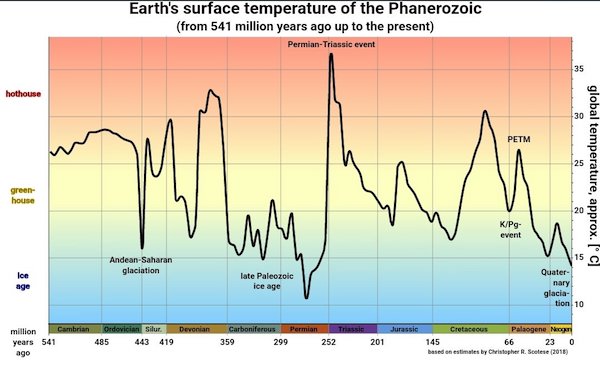
Read more …




Led by Donkeys
https://twitter.com/i/status/1639689865238306816



Sunak
https://twitter.com/i/status/1639966313417261056

Cybertruck

Sleep seal
https://twitter.com/i/status/1639979941608542209

Baby jaguar

The Big fight
https://twitter.com/i/status/1639940131762077700


Support the Automatic Earth in virustime with Paypal, Bitcoin and Patreon.



